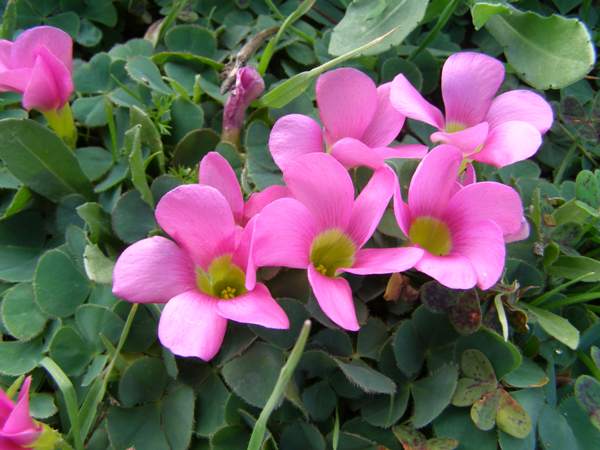Oxalis articulata - Pink oxalis
Phylum: Magnoliophyta - Class: Equisetopsida - Order: Oxalidales - Family: Oxalidaceae

In the UK and Ireland this plant is naturalised in south-westerly regions where it has escaped from gardens. It is a native of the Mediterranean region in Europe, and the eastern temperate zone of South America.
Pink Oxalis seems to be a very successful plant and pops up all over the world. Pictured above from a river-side meadow in the Algarve region of Portugal, we have also found this plant in parks in Buenos Aires in Argentina and in other parts of South America. In England we are more familiar with the yellow form.
This plant is closely related to the Bermuda Buttercup (Oxalis pes caprae,) which dominates the landscape in Portugal and the Iberian Peninsula from December right through until May. Despite the name this is not a true buttercup but rather another member of the Sorrel family (Oxalidaceae). The plant is so widespread that the actual country of origin is now uncertain. It is present in the Western European Mediterranean region.
This specimen was photographed in the Algarve in Portugal in February.
Please Help Us: If you have found this information interesting and useful, please consider helping to keep First Nature online by making a small donation towards the web hosting and internet costs.
Any donations over and above the essential running costs will help support the conservation work of Plantlife, the Rivers Trust and charitable botanic gardens - as do author royalties and publisher proceeds from books by Pat and Sue.

